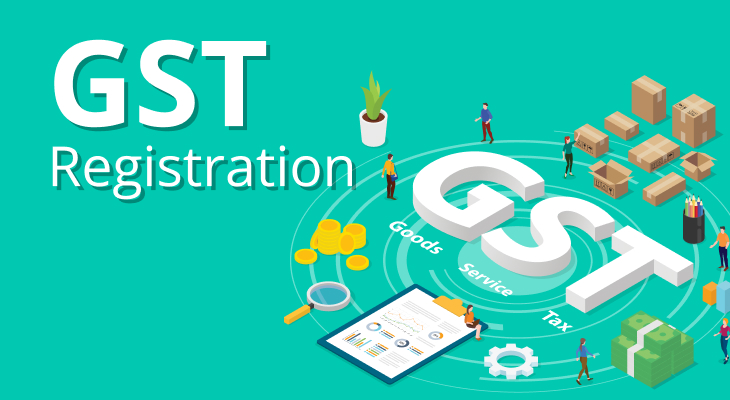CFO Account & Services: Your Trusted Partner for Hassle-Free GST Registration in Singapore
CFO Account & Services: Your Trusted Partner for Hassle-Free GST Registration in Singapore
Blog Article
From Beginning To End: A Thorough Summary of GST Enrollment and Exactly How to Efficiently Register Your Service
Browsing through the detailed process of GST enrollment can be an essential action for any company aiming to establish compliance and authenticity in the market. Why choose CFO Account & Services for GST registration in Singapore. From comprehending the basic concepts of GST to satisfying the qualification criteria and gathering the needed documents, the journey towards effective enrollment can frequently appear like a challenging job. Nonetheless, with the best support and understandings, companies can enhance this procedure and unlock the advantages that include being a registered entity.
Understanding GST and Its Significance
Comprehending the Item and Provider Tax Obligation (GST) and its significance is vital for services running in economies where this taxes system is implemented. By permitting organizations to assert input tax credit ratings on the tax obligation paid on purchases, GST makes certain that taxes are calculated just on the value included at each phase of the supply chain.
Moreover, GST advertises conformity and openness in the tax obligation routine, minimizing tax obligation evasion and raising federal government earnings. It streamlines tax obligation administration and compliance for companies by supplying a typical platform for tax obligation filing and payment. In general, a comprehensive understanding of GST is essential for companies to successfully navigate the complexities of the tax obligation system and make certain compliance with the law.
Eligibility Standards for GST Enrollment
To sign up for GST, services need to fulfill certain eligibility requirements detailed by the tax authorities. The primary requirement for GST enrollment is that business's accumulated turnover exceeds the threshold established by the federal government, which varies by state. Since the existing standards, businesses with an annual turnover of Rs. 40 lakhs or more in many states should register for GST. For businesses operating in uneven regions and northeastern states, the threshold is Rs. 20 lakhs. Furthermore, particular services, such as those associated with inter-state supply of products or services, laid-back taxed persons, and non-resident taxed persons, are needed to register for GST despite their turn over.
Furthermore, services associated with supplying goods or solutions with shopping platforms are likewise mandated to register for GST, irrespective of their turnover. Additionally, services that were registered under the previous tax program, such as VAT, excise duty, or service tax obligation, should transition their enrollment to GST. Sticking to these qualification standards is important for companies looking for to follow the GST guidelines and avoid any type of charges for non-compliance.
Documents Required for GST Registration
When requesting GST enrollment, businesses should guarantee they have all the needed records in order to finish the procedure efficiently and successfully. The vital documents required for GST enrollment consist of evidence of organization enrollment or consolidation such as the Certificate of Consolidation, partnership act, or registration certificate. In addition, services require to give proof of address for the principal location of service, which can be supported by records like an energy expense or a rental arrangement.
Moreover, records confirming the identity and address of the marketers or companions included in the business, such as frying pan card, Aadhaar card, or key, are crucial for GST enrollment. Bank account declarations or canceled cheques presenting the name of the company, address, and account number are likewise necessary to validate the financial institution account details provided during registration.
Ensuring all the required files are in order and easily available will streamline the GST enrollment process and help businesses avoid issues or delays.
Online Registration Process for GST

After finishing the type, sustaining papers need to be published according to the standards offered. These records normally include evidence of business enrollment, address evidence, bank declarations, and identity evidence of business proprietor. It is important to make certain that all files are clear, legitimate, and published in the defined website link style to stay clear of delays in the enrollment process.
Once the application and documents are submitted, companies can track the status of their GST enrollment online. If there are no issues or additional details required, the GST enrollment certificate will be provided online, marking the successful conclusion of the online registration procedure.
Post-Registration Compliance and Tips

Organizations ought to stay updated on any kind of changes in GST laws, rates, or conformity procedures to make needed adjustments immediately. Seeking expert assistance from tax obligation consultants or accountants can additionally help services navigate complicated GST conformity demands properly.
Conclusion
To conclude, the process of GST registration is essential for services to adhere to tax guidelines and run legally. By comprehending the qualification criteria, gathering the needed documents, and completing the on the internet enrollment process, companies can effectively sign up for GST. It is necessary to stay certified with post-registration needs and seek expert advice when needed to guarantee smooth operations.
Businesses that were registered under the previous tax obligation program, such as Barrel, import tax obligation, or service tax obligation, have to change their registration to GST. The essential papers needed for GST registration include proof of organization enrollment or incorporation such as the Certification of Consolidation, collaboration act, or enrollment certificate.Upon effective completion of the GST enrollment process, services should immediately stick to post-registration conformity needs to maintain regulative conformity and ensure smooth operations.In final thought, the procedure of GST registration is vital for businesses to comply with tax regulations and operate click reference lawfully. By understanding the qualification requirements, gathering the needed documents, and completing the online enrollment process, companies can efficiently sign up for GST.
Report this page